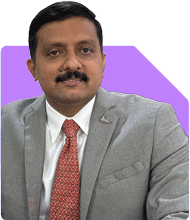i am earning 50k how to make 2cr pls guide me
Ans: It’s excellent that you are thinking about creating wealth over time. With disciplined saving and smart investments, you can achieve your goal of Rs 2 crore. Your current salary of Rs 50,000 per month allows you the opportunity to build a secure financial future.
Let’s explore how you can make this happen.
Start Small but Stay Consistent
The key to wealth creation is consistency. With your current salary, you can allocate 20% of your income to investments. This means you will invest Rs 10,000 per month.
This Rs 10,000 monthly SIP (Systematic Investment Plan) is a great way to start.
By investing consistently, you are laying the foundation for future growth.
Remember, small amounts invested regularly over a long period can yield significant results.
Increasing SIP Contributions Gradually
As your income grows, so should your investment. To ensure that your investment keeps pace with your lifestyle and inflation, step up your SIP contributions by 10% each year.
For example, if you start with Rs 10,000 per month, increase it to Rs 11,000 in the next year, Rs 12,100 the year after, and so on.
This “step-up” ensures that your contributions grow alongside your income, helping you reach your Rs 2 crore target faster.
With a 10% step-up in SIP, your investment will grow more effectively without putting too much strain on your finances.
Power of Compounding
One of the most powerful aspects of long-term investing is the compounding effect. The longer you invest, the greater the effect of compounding.
Over a period of 20 years, your investment can potentially grow at an average rate of 12% per annum.
By consistently investing Rs 10,000 every month with a 10% annual step-up, your portfolio can grow to around Rs 2 crore by the end of 20 years.
Compounding works best when you remain invested and let your money grow over time.
Choose Actively Managed Mutual Funds
When investing for the long term, actively managed mutual funds can offer better growth compared to passive index funds.
Actively managed funds are overseen by experienced fund managers who make strategic decisions to maximize returns.
Unlike index funds, which simply track market indexes, actively managed funds offer better potential for outperformance.
In your case, choosing actively managed equity mutual funds will help you achieve better returns and reach your Rs 2 crore target.
Why Direct Funds May Not Be the Best Choice
Some investors might consider investing directly in mutual funds. However, it’s worth noting that direct funds often require you to monitor and manage the portfolio yourself. This may not be the best option for everyone.
Investing in direct funds requires time, expertise, and regular tracking of market trends.
In contrast, investing through a Certified Financial Planner (CFP) or Mutual Fund Distributor (MFD) allows you to get professional guidance and support.
This professional guidance helps you build a well-diversified portfolio, reducing the risks involved with direct investing.
Stick to the Plan
Wealth creation doesn’t happen overnight. The most important thing is to stick to your investment plan. Avoid the temptation to withdraw or stop your SIPs.
Market fluctuations are normal, and there will be times when returns may seem lower. Stay invested.
Your long-term commitment to regular SIPs will help you build a substantial corpus over time.
The disciplined approach is what separates successful investors from the rest.
Adjusting for Life Changes
As your life circumstances change, such as job changes, promotions, or personal events, you may need to review your financial plan.
Always re-evaluate your investment goals and adjust your SIP contributions accordingly.
For instance, if your salary increases, try to allocate more than 20% to your investments. This will help you achieve your goals even faster.
Review Your Portfolio Regularly
It’s essential to review your portfolio regularly. Your financial situation and the market environment may change over time, so a regular review will help you stay on track.
Every year, sit down with a Certified Financial Planner to review your portfolio.
Adjust your investments based on market trends, your financial goals, and life events.
Regular reviews ensure that your investment strategy remains aligned with your long-term objectives.
Benefits of a Diversified Portfolio
Investing all your money in one type of mutual fund may expose you to unnecessary risks. Instead, focus on building a diversified portfolio that spreads your investment across different sectors and asset classes.
A diversified equity mutual fund portfolio helps minimize risks while still offering good growth potential.
Diversification reduces your exposure to any single asset class or sector, ensuring stability in your portfolio.
Over the long term, a balanced portfolio offers a smoother journey towards wealth creation.
Avoid Unrealistic Expectations
It’s important to have realistic expectations about your investments. Equity mutual funds can provide excellent returns over the long term, but they are not without risks.
Don’t expect overnight returns. The equity market can be volatile, especially in the short term.
Stick to your long-term plan and avoid making impulsive decisions based on market fluctuations.
The average return of 12% per annum is a realistic target for long-term investors.
Final Insights
Achieving Rs 2 crore with a Rs 50,000 salary is possible, but it requires discipline, consistency, and a long-term approach. By investing 20% of your income in SIPs and stepping up your contributions by 10% each year, you can grow your wealth steadily over time.
Start with a Rs 10,000 monthly SIP and increase it every year.
Choose actively managed mutual funds for better returns.
Stay committed to your plan for 20 years to reach your Rs 2 crore goal.
Regularly review your portfolio and adjust your investments as needed.
By following these strategies and giving your investments time to grow, you can achieve your financial goals and secure your future.
Best Regards,
K. Ramalingam, MBA, CFP,
Chief Financial Planner,
www.holisticinvestment.in
https://www.youtube.com/@HolisticInvestment























.jpg)




